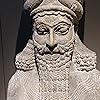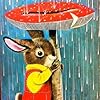Dana DesJardins
asked:
The flyleaf posits that this book "offers a transcendent vision for a way forward." While Coates insists on self-interrogation, education, solidarity, and awareness as survival strategies, I did not find a "transcendent way forward." Some help please?
To answer questions about
Between the World and Me,
please sign up.
Robert Westbrook
I am not sure that Coates ever offers a "way forward." I don't think that's within the scope of the book. I think his aim was most of all to throw a brutally honest illumination on the past (and most especially the present), so that we can attempt to formulate a way forward only after we've been honest with ourselves about what's been going on, and the harmful delusions we've been living under. I don't think there is a way forward until everyone understands the volume of lies they've grown up with.
Glauber Ribeiro
Yes, see the final pages of the book. Struggle for wisdom, for the memory of your ancestors, for your name. Hope for the dreamers, pray for them if you so wish, but don't pin your struggle on their conversion. In other words, wake up, reject the fantasies of race, live in the real world.
David Lucander
Publicists write the flyleaf, authors write the book.
Brent Forkner
Coates addresses specifically and exactly "the way forward" in numerous passages of this book. And what I get from my first reading (listening really) is that any way forward requires that we awaken from the dream. This awakening is individual, but I think the way forward involves finding others who wish to awaken and creating a life and a world in which we can be awake together. I am one of those "people who have to believe they are white." I can see that far. And I see in another writer, Ann Pancake's book "Strange As This Weather Has Been" a story of people who believe they are white and yet are awakening to the reality that they are not part of the dream. So I believe it is possible to awaken, and that is the way forward. Wake up!
Erica
It would be nice, wouldn't it, for an author who lays out the issue so dramatically, to also lay out the specifics of the "way forward" for all of us. Unfortunately, I think Ta-Nehisi Coates chooses instead to let everyone find their own specific way to transcend this situation, and create a better world.
It is a hard job to describe honestly what you observe and feel. It is a different hard job to give a prescription for the remedy. If we had a visionary counterpart to Coates, who made specific suggestions for government action as well as civic action, then we could all rally behind a cohesive movement. As it is, I suppose we each have to think on our own of how our society should best make forward progress.
It is a hard job to describe honestly what you observe and feel. It is a different hard job to give a prescription for the remedy. If we had a visionary counterpart to Coates, who made specific suggestions for government action as well as civic action, then we could all rally behind a cohesive movement. As it is, I suppose we each have to think on our own of how our society should best make forward progress.
Claudine
The "transcendent way forward" is for America to realize the Dream does not exist. For this to happen, we have to accept that race is a social construct, not a reality. Race is a lie we've been fed for centuries.
Skye Sherman
Funny--I thought the exact same thing upon finishing the work. I felt it was almost ironic for this statement to appear in the flyleaf because, in a way, it seemed to me that one of Coates's implied (and, ultimately, sobering) messages was that perhaps there is no way forward. At least, no way besides some sort of intervention of the miraculous--a possibility he systematically rejects.
Susan
The struggle is the way forward.
Karol K
Simply, the way forward is basically to educate the public so that deniers know their history. You cannot move forward if you deny your past. Most USAmericans have no clue how their actions affect the world. They then repeat the mistakes of the past.
Brad Lyerla
There is no transcendant way forward in this book. The dust cover really misses the boat on this point. But Coates does offer a form of stoicism for his son to follow as a way of coping and that's of some value.
I am still writing my own review of this book, which I regard as very worthwhile, but not especially hopeful.
I am still writing my own review of this book, which I regard as very worthwhile, but not especially hopeful.
Lynn Silsby
Coates has written about the incompatibility between history and hope and I think it speaks to your question: http://www.theatlantic.com/politics/a.... He writes that in the study of history, it seems one mostly finds chaos rather than justice and righteousness, and as a result, historians tend not to be optimistic sorts: "Hope may well be relevant to their personal lives, but it is largely irrelevant to their study. Moreover, the search for a crude inspiration, for a narrative which dictates that America triumph in the end or justice necessarily win out, seems immaterial to their actual discipline."
An individual's way forward and a writer/historian's way forward are not, and probably cannot be, the same. Both at least must acknowledge and reckon with the truth before progressing and that's task enough. I like Susan Odetta's answer that "The struggle is the way forward." May not (probably will not) see the change in one's own lifetime but what else is there to do and at least one isn't standing on delusions then.
An individual's way forward and a writer/historian's way forward are not, and probably cannot be, the same. Both at least must acknowledge and reckon with the truth before progressing and that's task enough. I like Susan Odetta's answer that "The struggle is the way forward." May not (probably will not) see the change in one's own lifetime but what else is there to do and at least one isn't standing on delusions then.
Mary
I kind of agree! But I love all the responses below. What is needed is to "wake up" and realize exactly how racist America is, and has always been. I'm talking about structural racism, and that's a very hard thing for a white person like me to see. But it's there. We have to wake up and see it in order to start to eliminate it.
Teresa
This is an important point. No, Coates does not offer a way forward—more of an autobiographical explanation of how his thinking came to be. It is also a warning to his son to not become too complacent in this world, for the struggle is not over and the rights not fulfilled as they should be. Alongside this book, I recommend reading Coates' 2014 Atlantic article, "The Case for Reparations" which may give a better idea of a "way forward."
Saurabh Sharma
There certainly is a way forward in this book. And that is for the current generation of America to be aware of all the violence that has been inflicted upon the black people, and rethink their idea of supremacy. Should an idea be a supremacist or color of our skin? That, what Coates imply, is what "they" have to decide and help "themselves." Which is absolutely true, we can't learn on behalf of someone. What one can do is read this book and learn the history of torture that a black body has bore since forever, the hatred in the eyes of people, and in some cases sheer condescension of their presence. What is meant by "offers a transcendent vision for a way forward," isn't necessary an implication that this book contains strategies, like those shitty "to-do" books, on how America can be great and do away with racism; instead, what I feel, the book is saying indirectly is that people can learn, read and arm themselves with information, and also stand up for the discrimination and violence against blacks. Hope this helps!
Moira
Just to ask the questions and get people to consider another point-of-view is the way forward.
S. Suresh
Coates does say how this nightmare that black people face can end - when the white people wake up from their Dream. A Dream that compels them to need the black people beneath them to enjoy their sense of superiority; a Dream that redlines the black people out of their safe suburban life style. Perhaps not transcendent, but a way forward nonetheless. Although, I must admit with some of the other answers here - Coates doesn't sound too optimistic that it is likely to happen anytime in the near future.
S.W. Gordon
Tolstoy is the Tolstoy of the Zulus. The way forward is to eliminate racial bigotry and bias on both sides of the equation---something Coates fails to accomplish on his end. Coates would rather fan the flames of racial division than attempt to heal the wounds of past injustices.
Lori
Realize that the author does not usually write any description of the book, it is the publisher that does that for advertising purposes. That being said, I don't think that Coates was necessarily optimistic about a way forward. The only way forward for the US as a society is for the dreamers to give up the Dream because the dream is built on the bodies of the black people. However, I think Coates feels this not going to happen (on a large scale anyway...individuals may convert). I think he gave hope to his son moving forward but in a restrained way. He must not live in the dream, he must live in this reality and accept it.
Elizabeth
I agree that there was no "transcendent way forward."
Mark
I read the book. The "way forward", as far as I can tell, is to be aware of and to be angry about living in country entirely devoted and founded upon racism. Everything else Americans believe about their country is a myth, in his view. That is the way forward.
About Goodreads Q&A
Ask and answer questions about books!
You can pose questions to the Goodreads community with Reader Q&A, or ask your favorite author a question with Ask the Author.
See Featured Authors Answering Questions
Learn more






















